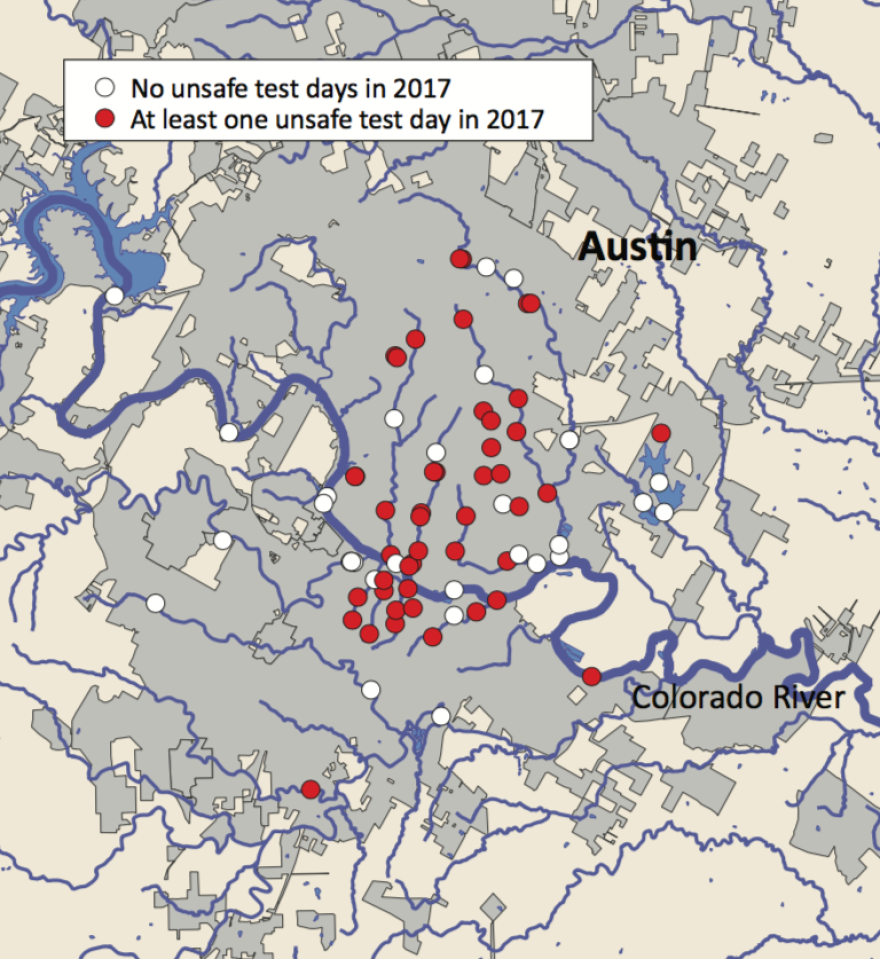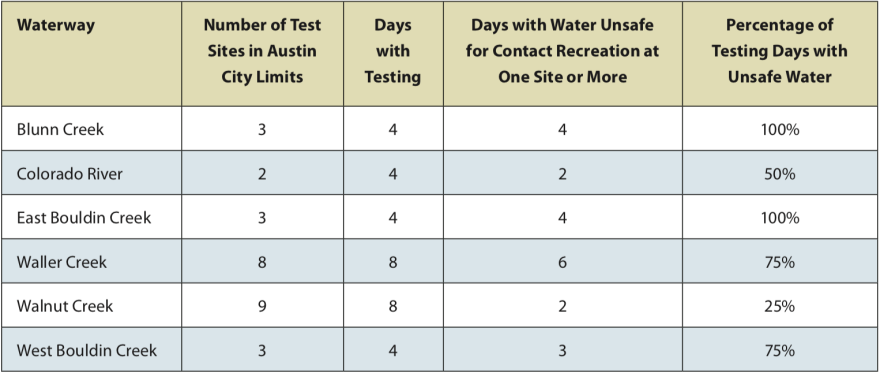More than half of Austin waterways have unsafe levels of fecal bacteria, according to a study out today. The analysis from Environment Texas found 46 of the 76 sites tested in Austin exceeded safe levels of bacteria at least once last year.

Brian Zabcik, a clean water advocate with Environment Texas, said nearly half of the 1,450 freshwater sites tested across the state had similar problems.
"Of those locations, 49 percent had at least one day of unsafe bacteria level last year," Zabcik said, "bacteria levels that were too high to safely go swimming."
In Austin, some of the top sites included the Colorado River and Blunn, East Bouldin, West Bouldin, Waller and Walnut creeks. Researchers collected data from both the Texas Commission on Environmental Quality and the Austin Watershed Department.
The report lists sewage and wastewater runoff as the primary culprits, adding that swimming or wading in contaminated water can lead to a range of health problems, such as gastrointestinal illnesses, respiratory disease and skin rashes.
Three of the creeks tested in Austin – East Bouldin, West Bouldin and Blunn – had unsafe levels of bacteria at all but one of their testing sites. Environment Texas blames the contamination on the fact that the majority of Austin’s waterways are in urban areas. It also noted that both Houston and Austin contained outsized numbers because of the frequency of testing in both cities.

The nonprofit did praise city efforts to reduce runoff in those urban streams, however, in particular a requirement to incorporate green-minded runoff-retention strategies in new commercial and multifamily construction. The only problem? Those requirements were folded into Austin's now-defunct land-development code rewrite, CodeNEXT. Environment Texas urged the city to consider incorporating that requirement into its next rewrite effort.
Nadia Hamdan contributed to this report.



